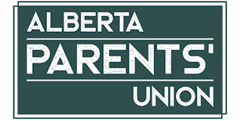NEW SCHOOL YEAR, NEW CURRICULUM CONFLICTS BREWING
The school year is about to start back and some schools will be piloting a new Social Studies curriculum for Grades 7 through 9.
We were the leading voice for parents when the K-6 Social Studies curriculum was being fiercely debated.
This curriculum promises to generate every bit as much controversy.
We'll give just one section (from Grade 7) as an example.
Then we will link the entire draft curriculum for your feedback at the end of this email.
This is just one section of desired Grade 7 curriculum outcomes.
The quotes are the entirety of one section, in order, and nothing else.
We say this just to emphasize that we did not go hunting for “greatest hits” or even say this section is more important than others.
Consider this a sample to show the kind of thing we expect parents and taxpayers might be interested in from the full document.
“Analyze the impact of expansion west after Confederation on Canada’s economy.”
“Investigate the short-term and long-term consequences of Sir John A. Macdonald’s National Policy on Canada’s economy.”
“Research the contributions of Sir John A. Macdonald.”
Discussion of Canada’s earliest history as a self-determining state is important.
Parents have been clear that this history-rich content is what we want to see.
Still, the heavy focus on Macdonald, to the exclusion (here) of other Fathers of Confederation, is likely to court controversy.
While polls tend to find majorities in support of Macdonald’s legacy, it is increasingly under scrutiny.
In a typical classroom, it is unlikely that Macdonald’s legacy will be discussed without reference to contemporary political conflicts.
“Compare the opportunities and challenges of tariffs and free trade on the Canadian economy.”
Speaking of contemporary political conflicts, it's difficult to name one raging more fiercely than tariffs and free trade.
This curriculum, we can fervently hope, will continue to be relevant beyond this present crisis.
But, in a broader sense, tariffs and free trade have been inherently political topics - and topics that naturally bring feelings about our large neighbour nation - since Confederation and even before.
“Explain gross domestic product.”
While no economic concept can be entirely free from political controversy, this one is foundational to any further economic studies.
Parents were clear that economics is one of the core disciplines of social studies that we expect to see covered in a content-rich curriculum.
Gross domestic product is also core to comparisons between government jurisdictions in other disciplines of social studies.
“Justify the use of taxation and equalization payments.”
This is likely to be controversial, if only because many Albertans do not believe equalization payments can be justified - at least as currently structured.
Of course, justifying the use of taxation is always an ongoing matter of political controversy.
“Explain the crucial role of natural resources in Canada’s economic growth.”
The Alberta Teachers’ Association is likely to object to this clause.
As a reminder, they objected to very similar language in the Grade 3 curriculum with regard to Alberta's economic growth.
They also recommend a resource for teachers that calls on them to question private property itself to combat natural resource development.
“Analyze the reciprocal relationship between gross domestic product and banking.”
“Explain the role of the Bank of Canada in Canada’s economy.”
For both of these outcomes, there are competing economic schools of thought with different answers to these questions.
We find it unlikely that most Alberta students will be exposed to the idea that banks - and the Bank of Canada in particular - cause the “boom and bust” business cycle.
Yet this is precisely the theory that won Friedrich Hayek the Nobel Prize in economics.
And it is still championed by one of the most important think tanks in the world - the Fraser Institute - on whose board he served.
As you might imagine, this will invite significant political controversy, important as it may be as an economic concept.
But this is just one section, of one grade's proposed outcomes.
We would love to hear your feedback on the whole draft curriculum!


